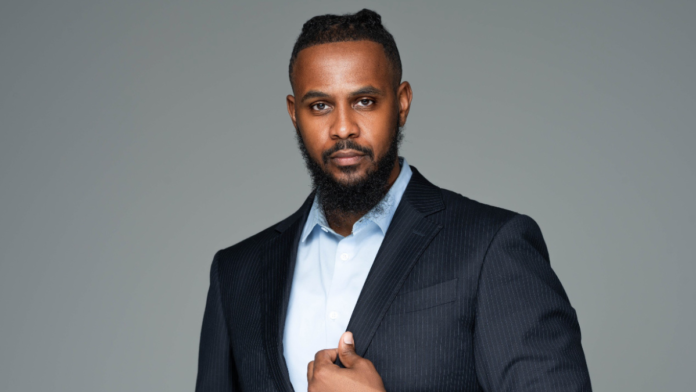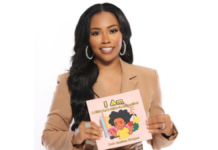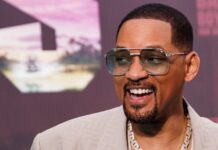( ENSPIRE Community Spotlight ) Assad Is The Brainchild Behind The Hope Campaign & Revival DC
ENSPIRE Contributor: Gabrielle Maya
DMV-based artist Yusha Assad is a former educator and hip-hop artist giving back to the artist and entertainment community. A North Carolina native, at the age of 7, he began to write and sing music. When it comes to his music, he takes inspiration from artists like Jay Z, Nas, Sam Cooke, and Lauryn Hill. He is a storyteller who inspires listeners with his unique lyrics and sound. Assad strongly believes that what builds success is through the hands and hearts of people and living life with great care. He has opened for major artists such as The Game, K. Michelle, Brandy, Scarface, Ja Rule, and August Alsina. He is a vocalist with over twenty years of experience in writing and recording music.
Some of his accomplishments include performing at conferences such as the A3C Festival in Atlanta, SXSW in Austin, Texas, and Revival DC. Assad’s music reflects love, business, religion, and life. He gained inspiration through Jay-Z and his stories of hustle and success, the knowledge that Nas expresses, the soulful melodies of Sam Cooke, and the spirituality and love Lauryn Hill reflects through her lyrics. All this encompasses Assad and his music.
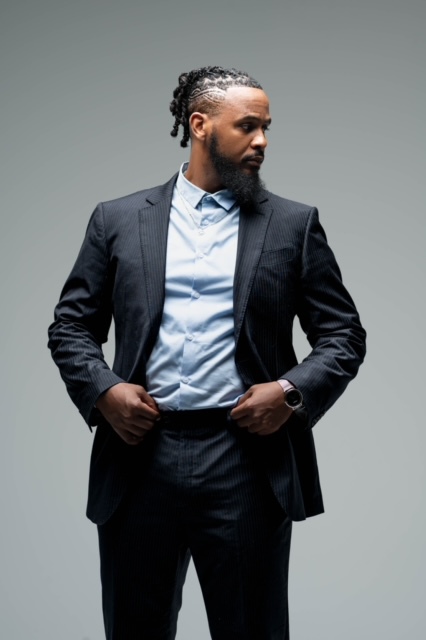
In addition to music, he has also been an educator for over five years. He is passionate about educating the youth and teaching them to follow their dreams. “Teaching has given me the opportunity to be better by allowing me to reflect on my own character and needs. My students have motivated me to follow my dreams, and so I get the opportunity of not just telling them to succeed, but I get to show them how,” says Assad. He is currently the CEO of With Great Care, LLC, a curator for entertainment, business, and education. He is also the brainchild of Revival DC and The Hope Campaign.
Assad dives deep into his life in North Carolina, the beginning of his music career, the importance of education and teaching methods, With Great Care LLC, Revival DC, and more.
What was your life with music like when growing up in North Carolina?
Growing up in North Carolina, my music experience derived from the church, my father, and my brothers. NC is the Bible Belt. Church was a staple in the South, whether you went with your parents, grandparents, or your aunties. Most of us had to go to church on Sunday, plus the week-long revivals once a year. We went to smaller churches in the country. A lot of the music was Chitlin’s circuit music, what you call hand-clapping and toe-tapping. My early experiences are where my soulful influence comes from.
My father was a country boy named Manny Boy, nicknamed after Muddy Waters’s song Mannish Boy due to how bad he was as a kid. His tape deck spanned from blues to gospel to soul. He was a preacher and drove a truck, and whenever I would ride with him, we would listen to John Lee Hooker, Muddy Waters, Bessie Smith, BB King, Ray Charles, and Sam Cooke and the Soul Stirrers.
My brothers are 15 and 11 years older than me, and they traveled in the late 80s and 90s to find work. They would travel to New York and return with clothes, jewelry, and music.
The majority of the people in NC listened to southern music, but my crate was filled with Wutang Clan, EPMD, Nas, Tupac, Method Man, Mary J Blige, Public Enemy, etc.
My mother didn’t listen to anything other than the gospel. She considers all other music devil music. In Greensboro, a radio station called 90.1 played gospel on Sunday mornings but turnt into a roots and culture reggae station at 12. We went into church listening to John P Kee and came out listening to Bob Marley. This explains why my favorite playlist of artists consists of Sam Cook, Bob Marley, Nas, Jay Z, Buster Rhymes, Mali Music, Lauryn Hill, Curtis Mayfield, Common, Karega Bailey, and myself.
When did you start your music and teaching career?
I’ve been rapping since I was 7. But, I started pursuing a professional career in music in 2013 after I realized I could not just exist as a person who worked a job and went home. My creativity was too big. I needed to communicate through music for my sanity and because my students showed me they had a higher capacity to listen and learn from music than teachers. It just has to be appealing and relatable. In 2008, I started teaching after graduating from Winston-Salem State University. I went to school for business administration and music, but I did a program called Teach for America. It allowed me to transition into teaching and become helpful to black youth who may have grown up similar to me.
During this time, I also felt I had to do something that could be impactful for black people. The education I received in college gave me a level of understanding of the intentional, systematic work done to keep us down. I was hopeful that as a teacher, I would be more effective in guiding black youth away from the mistakes that I’ve seen my family members make. A couple of them received serious time when I was a kid. As teenagers and young adults, they were labeled as Kingpin’s in the 90s and sentenced to multiple life sentences.
I gave up music to teach and relocated to DC to do so. While teaching, I noticed my students struggling during math instructional time. I knew how overwhelming that could be for my students. I started writing songs to help encourage and inspire my students to get through the day. After five years of teaching and writing songs of encouragement to help black youth made me want to start making music again.
What do you believe is the importance of education and as an educator?
The real purpose of education is to help human beings reach their full potential. To self-actualize. To find meaning, prosperity, and achievement through the active use of their gifts to improve the lives of others. However, education in many American public schools is often just about job training, workforce preparation, control, and the continuance of a system. Shout out to all the teachers, educators, principals, and partners who work to help students break the code of life.
What methods do you provide students chasing their dreams?
I work with schools now through my own business as a partner, coach, and consultant. I work with administrators, teachers, and students. We teach them the practices of marketing and social ingenuity and use them to create social impact campaigns in schools that reshape the beliefs students have of themselves. I could do the work myself, but that doesn’t leave a lasting imprint. I coach all three groups through the process of research, campaign development, project implementation, evaluation, and conclusion to ensure that the work can be done in my absence. I believe I’m helping cultivate the next generation of black and brown leaders.
What was it like performing at conferences such as the A3C Festival and the SXSW?
Performing anywhere in the vicinity of A3C or SXSW is an incredible opportunity. It surely means something on your musical resume, but we all know that the most outstanding value is in relationships. The number of artists, producers, and managers at those festivals is unmatched, and having the opportunity to perform there breaks the ice on who you are and what you do. After my performance, every conversation was easier. I didn’t have to explain my position; it was felt and understood. Another wonderful aspect was networking with other creatives and building relationships.
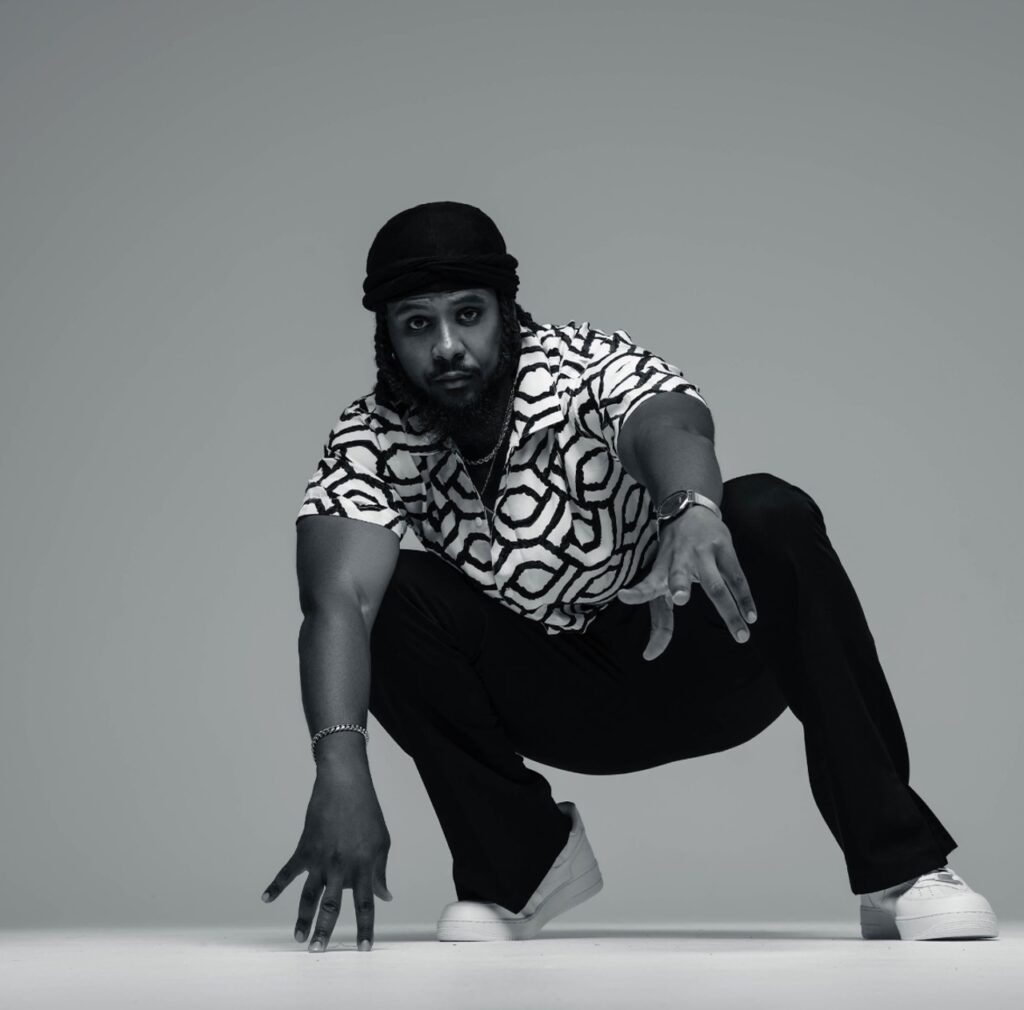
Describe the writing process that makes your music very storytelling. What tips would you give songwriters who are starting?
I’m a storyteller because I’m a visual person. When I create music, I first see the story in my head; then, I write what I see. I typically describe in my music what I see in my head. Mostly, I write from memory, past experiences, or recent encounters. However, songs like X (Ten) are more like downloads or visions of future events. I’m a visionary; many have said my lyrics are before their time. Honestly and powerfully, I intentionally write things into existence.
Explain With Great Care, LLC’s mission and how it helps entertainment, businesses, and education.
Our mission is based on spreading the belief that greatness isn’t achieved by striving to do great things. It’s truly achieved by doing everything you do with great care, purpose, and intention. It’s essentially a belief that governs how we do all things. We use projects within business, education, and entertainment to inspire this belief. Essentially, we are running one big social impact campaign to change how people do things, hoping to improve how we love.
We focus on coaching and social impact consulting that helps companies allocate corporate responsibility dollars in ways that improve the quality of life for their customers, employees, and the more significant communities they exist in. We also provide workforce development training and opportunities that help people navigate work and entrepreneurship.
In education, we do coaching and consulting for schools through a project called The Hope Campaign. We help administrators, teachers, and students build social impact campaigns that include SEL models, helping reshape public schools’ culture and climate.
In entertainment, we use music, visuals, experiences, and events like Revival DC as conduits to invite people to affirm their greatness and work to win. Everything we do is curated to inspire a new belief about black, brown, and hopeful people. We don’t build off the backs of others; and we build with the heart and hands of others. I have a lyric where I say, “I plan to make it out the barrel, with crabs attached to me.” Forget the crab in the barrel mentality where I believe others are holding me down. Forget that! If my fans are willing to climb and crawl towards their greatness, we can all go. Jay-Z said, “The lessons are really in the blueprint.” Listen to the music, and let’s work!
Tell us about Revival DC and what the event gives artists and entertainers.
Revival is a Unique Entertainment Event featuring comedy, poetry, visual art, and live music. The event highlights national and local stars.
Revival DC has been operating since March of 2016. We started at Amsterdam on U Street in Washington, D.C. We completed 6 successful months before it was clear we needed a bigger space. We moved the event to Firehouse, DC. We had one successful month before new ownership took over and went in a different direction.
After a month off in December of 2016, we landed a contract with the newly opened Ivy City Smoke. It was a great partnership. Ivy City Smokehouse had a new, great, small venue space. It could hold 500 people standing and about 120 people sitting. Revival being a sit-down, attendees joined us every first Friday and grew a distinct love for the event and the venue.
Our original contract with them was a trial run of 4 months but transformed into a three-year partnership. We’ve had well-known local and national artists during our events. Our organization had the privilege of hosting Tank and The Bangas, a Grammy-nominated New Orleans-based band who were touring and decided to add Revival to their list of stops.
We did not continue immediately and took a break over the summer to prepare for bigger relationships. In July 2017, we signed a contract with Ivy City Smokehouse to host Revival DC for eight months. This lasted from August 2017 through March 2018. It was a great success. We had over 35 artists perform during that time; all got paid, and the larger acts we had really brought some notable attention. We had Maimouna Yousef, aka MuMu Fresh, in August of 2017, just before her big viral break with NPR’s Tiny Desk.
We had Wes Felton, Chico Bean, Ayanna Gregory, Carolyn Malachi, and Yusha Assad. We even partner with the DC Urban Leagues Thursday Network to do a book drive during Black History Month. We were really focused on making the event a space for community and art. Both components were necessary. The notoriety had grown too big for the Ivy City space, but not the Ivy City vibe. But the writing was on the wall.
We decided that year to pull back from a monthly event to a larger once-a-year event and began to prepare for 2019. In 2019, we rented a boat and did the biggest Revival DC ever, with guests from The House Wives of Potomac and Raheem Devaughn headlining. The GoGo band TCB was our house band for the night, and former NFL Star Brian Mitchell hosted. We decided to do this particular Revival DC as a Fundraiser event for Sew N Know.
Still, it’ll be a retail sold ticket only for future events, not for charity or fundraisers. That was a one-time try. For 2020, our projected numbers increased, but the pandemic occurred. In March 2024, we’re slated to have our first Revival DC event since halting operations in February 2020.
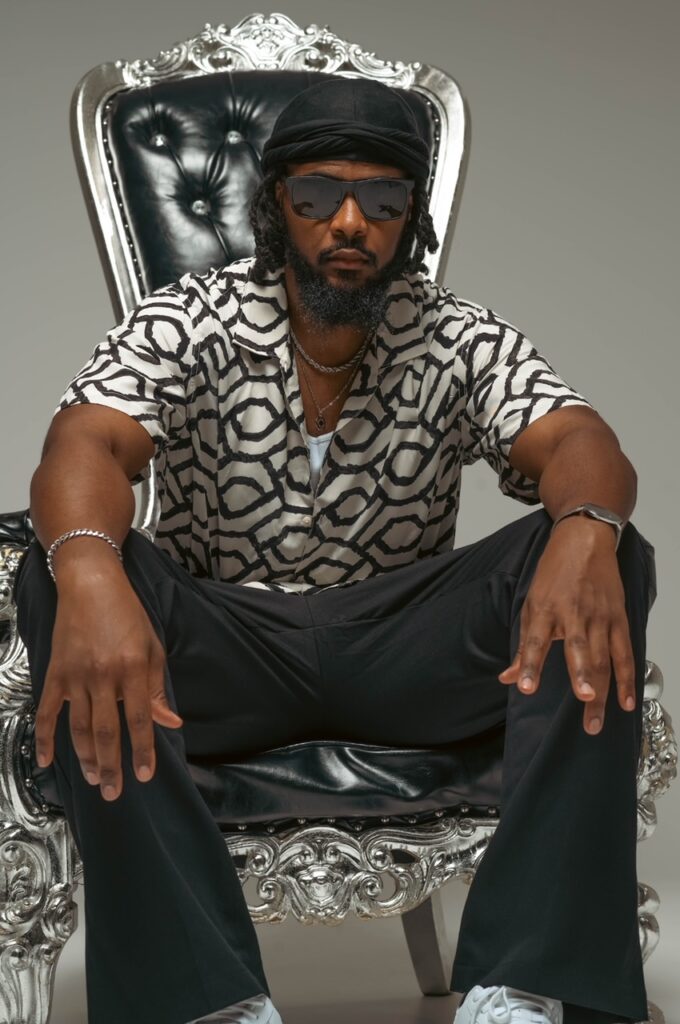
The Hope Campaign is like an ARTivism movement, what type of volunteering and donating goes into the cause?
The Hope Campaign is a comprehensive initiative designed to define, quantify, and cultivate hope among students precisely in the context of modern secondary education. The program encompasses the realm of social and emotional learning, complemented by a strategic approach to shaping school culture and climate. It delves into the realm of social impact marketing to stimulate a desire for specific educational achievements in communities where such aspirations may not be prevalent or favored.
This three-part presentation aims to illuminate the ramifications of hopelessness within educational staff, student leadership cohorts, and the broader student population. Conversations with staff and student leaders can be tailored to address a wide range of pertinent topics, including graduation rates, end-of-course testing outcomes, college acceptance rates, and post-graduation career success. Meanwhile, presentations to the larger student body serve as real-world demonstrations of strategies to inspire hope, employing various media formats such as music, videos, interactive elements, and incentives to encourage active participation.
Participants in the Hope Campaign emerge not only to rekindle a sense of hope regarding the pursuit of educational equity but also with practical tools and methods to invigorate their roles within their educational institutions. The most remarkable outcome is the heightened engagement and commitment of the general student body and the deliberate efforts of student leaders in a quest to serve as exemplars of hope within their school communities.
We are a for-profit company, and we do not take donations. We work with corporate companies looking to partake in great social responsibility and impact. Sponsorship for the entire Hope campaign is $150,000 per year. Our yearly goal is 20 schools at $4,000 per school. Last, we team up with companies to carry their brands into each school to ensure the next generation of leaders recognizes their social ingenuity and investment footprint.
For more information on Yusha Assad and his projects, follow his Instagram or visit https://www.hopecampaign.org/ and https://www.facebook.com/wgcrevivaldc/ to view The Hope Campaign and Revival DC. To stream and purchase his music and merch, click here.
Related Articles: Multi-Award Winning Recording Artist Erica Campbell Releases Her 3rd Studio Album, “I LOVE YOU,” Goodwill Scholars Program: Breaking Down Educational Barriers

